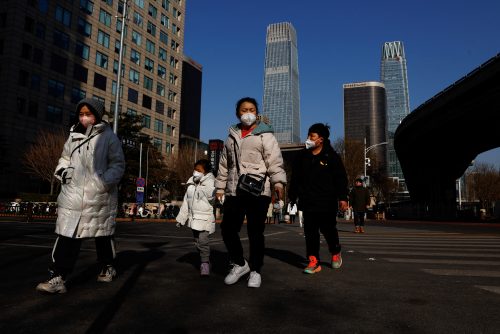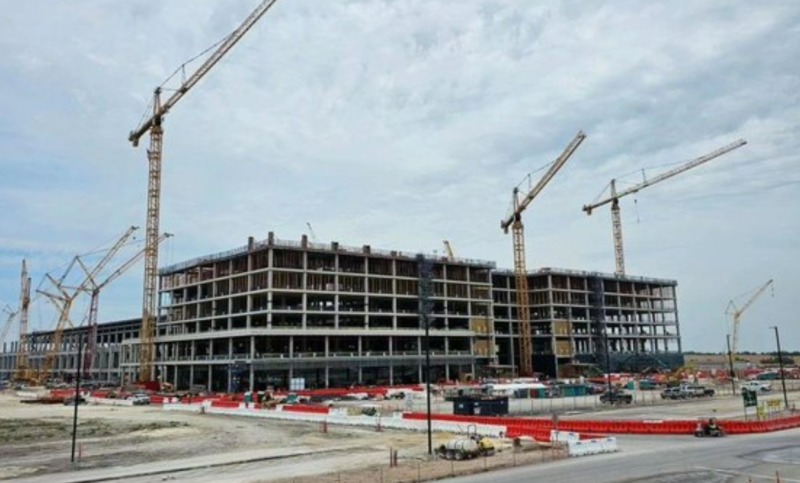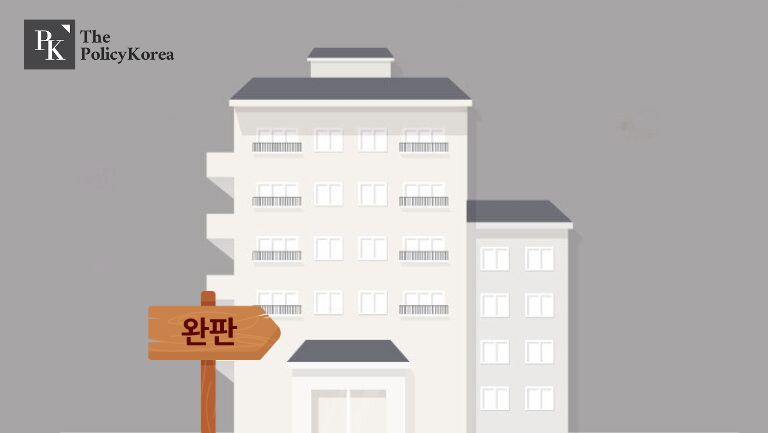[동아시아포럼] 투자 유치를 위한 2023 베이징의 노력
중국의 제로 코로나 정책 및 규제 단속으로 민간 및 외국인 투자자 걱정 커져 중국 정부 ‘개혁 개방’ 결의 되풀이하는 중, 지방 정부도 마찬가지 대외지향적 경제 되돌린다면 중국 경제, 정치, 사회 모두가 큰 타격 입을 것
[동아시아포럼]은 EAST ASIA FORUM에서 전하는 동아시아 정책 동향을 담았습니다. EAST ASIA FORUM은 오스트레일리아 국립대학교(Australia National University)의 크로퍼드 공공정책 학교(Crawford School of Public Policy) 산하의 공공정책과 관련된 정치, 경제, 비즈니스, 법률, 안보, 국제관계 및 사회에 대한 분석 및 연구를 위한 플랫폼입니다.
저희 폴리시코리아(The Policy Korea)와 영어 원문 공개 조건으로 콘텐츠 제휴가 진행 중입니다.
코로나 시기를 거치며 잔뜩 움츠러든 중국 투자자들의 투자 심리가 풀리지 않고 있다. 중국 정부의 강경한 제로 코로나 정책이 화근으로 꼽힌다. 상하이의 미국 상공회의소(AmCham)가 발표한 중국 비즈니스 연례 보고서에 따르면 최근 설문조사에서 올해 투자를 늘렸다고 답한 기업은 30%에 불과하다. 이는 2021년 38%에서 크게 감소한 수치다.
설문조사에 참여한 307개 기업 중 5분의 1은 코로나19와 관련된 이유로 올해 중국 투자를 줄였다고 답했다. 더욱이 약 3분의 1은 당초 계획했던 투자를 이미 다른 곳으로 돌렸다고 답했다. 설문조사 결과는 얼어붙은 투자 심리를 완화하고, 민간 경제 활성화에 힘쓰는 한편, 외국인 투자 유치에도 집중해야 하는 중국 정부의 과제를 분명히 보여주고 있다.

변화하는 중국의 경제 환경
지난 2021년 시진핑 국가주석은 ‘공동부유(共同富裕)’라는 새로운 경제 원칙을 제시했다. 공동부유 원칙에 따라 중국은 플랫폼 경제에서 온라인 금융, 부동산을 아우르는 전방위적 규제를 감행했다. 고속 성장으로 인한 중국의 극심한 빈부격차를 줄이고 중산층 확대로 부의 재분배를 실행하겠다는 취지였지만 기업계가 예상하지 못한 폭거였다. 특히 빅테크 기업에 대한 규제를 강화하고 (공산당에 대한) 민간 부문의 충성도와 금융 안정성에 중점을 둔 중국 정부의 정책은 민간 경제에 큰 충격을 주었고 결국 많은 기업들이 투자 전략을 재조정하는 결과를 낳았다.
게다가 중국과 서방 세계와의 대립이 나날이 극심해지며 국제 정세도 중국 경제에 악재로 작용했다. 여기에 제14기 전국인민대표대회 1차 회의 개막식에서 중국의 ‘기술과 과학의 자립’이 훌륭하게 이루어지고 있다는 발표가 더해졌다. 지도부가 중국의 개혁·개방 시대의 종언을 알리는 국가 중심적인 폐쇄 경제 전략으로 선회하는 것이 아니냐는 불안감이 확산하며 가뜩이나 불확실한 민간 경제의 활력을 꺼뜨렸다.
“개혁 개방에 전념”
여러 어려움이 있었던 만큼 2023년은 중국이 국내외 기업 및 투자자를 안심시킬 수 있는 매우 중요한 해다. 앞서 언급했던 ‘제로 코로나’ 정책은 지난해 말 마침내 막을 내렸고, 최근에는 새로운 최고지도부의 명단이 발표된 상황이다. 이제 중국은 포스트 판데믹 시대를 맞이해 개방·친기업 정책을 유지하고 특히 민간 부분을 중시하고 있다는 사실을 전 세계에 입증할 필요가 있다.
중국은 서비스 및 디지털 무역의 확산을 통한 무역 지배력 강화에 중점을 두고 제도적 개방성을 확대하기 위해 노력해 왔다. 동시에 일대일로 정책을 통해 질적으로 우수한 성장을 촉진하고 있다. 지역 개방성 강화를 목표로 하는 하이난 자유 무역 지대와 같은 계획은 이미 진행 중이며, 이는 안정적인 국제 경제 질서를 유지하려는 중국의 의도라고 풀이된다.
특히 중국공산당 제20차 전국당대표대회의 2022년 보고서는 중국이 ‘개혁 개방에 전념’하고 ‘높은 수준의 개방을 촉진’하며 ‘공공이 아닌 부문의 건전한 발전을 촉진’할 것이라고 강조했다. 국무원 제1차 전체회의에서는 신임 중국 총리 리커창(李克强)이 이러한 기조를 반영해 개방을 추진하고 민간 부문에 권한을 부여해 더 많은 외국인 투자 유치를 최우선 과제로 삼겠다고 밝혔다.
새 총리의 첫 행보는 민간기업 방문
리 총리는 지난해 8월, 총리 취임 후 처음으로 베이징을 떠나 중국 최대 전기차업체이자 민간기업인 비야디(BYD)의 생산 시설을 방문했다. 아울러 전자제품 제조업체 샤오미(Xiaomi)의 CEO 레이쥔(雷軍) 등 중국 대기업의 최고경영진과 함께하는 제조업 포럼도 개최했다. 이 자리에서 그는 중국 제조업에 있어 민간 부문의 중요성을 강조하고 기업 친화적인 환경을 만들겠다고 약속하는 등 민간 부문을 안심시켰다.
외국인 투자자들을 안심시키는 것도 잊지 않았다. 중국 정부가 이들을 달래고자 선택한 건 국제회의다. 지난 3월 열린 중국발전 고위급포럼(중국발전포럼, China Development Forum)에 전례 없는 축하 서한을 보낸 시 주석은 개방이 중국의 근본적인 국가 정책임을 재차 강조했다.
리 총리와 한정(韓正) 중국 국가부주석은 다국적 기업 CEO들과 연쇄 회동을 가지며 체계적이고 지속 가능한 개방을 촉진하겠다고도 약속했다. 같은 달 말 하이난에서 개최된 아시아 보아오포럼(Boao Forum of Asia) 연례회의에서도 마찬가지였다. 리 총리의 개회사에서도 이를 확인할 수 있었는데, 새로운 조치를 통해 시장 접근성을 계속 확대하고 국영 기업(SOE), 중국 민간기업 및 외국 기업의 비즈니스 환경을 개선하겠다는 내용이 담겼다.
지방 정부도 나섰다. 상무부는 ‘중국 투자의 해’ 활동의 일환으로 지방 정부와 협력해 전시회와 포럼을 개최, 더 많은 외국인 투자를 유치하겠다는 계획을 알렸다. 허베이성(河北省), 산시성(陝西省), 하이난성(海南省) 및 후난성(湖南省)에서는 민간 부문에 대한 정부 개입을 축소하고 다양한 채널을 통해 민간기업에 재정 및 신용 지원을 제공하는 등의 민간 경제 지원 방안을 발표했다.
지역 개방성을 위해 지방 정부 인사가 해외 투자를 유치하고자 직접 해외로 나간 사례도 있다. 중국공산당 광시좡족자치구(广西壮族自治区) 당위원회 서기 리우닝(刘宁)은 올해 3월과 4월 베트남, 싱가포르, 말레이시아에 방문해 총액 891억 위안(미화 129억 달러) 규모의 계약을 체결했다.
중국 정부는 민간 부문에 대한 비즈니스 환경의 개방과 향상을 위해 총력을 다하고 있다는 뚜렷한 메시지를 전달하고 있다. 포스트 팬데믹 시대에 중국이 민간 부문에 대한 개방과 지원을 철회하는 것은 사실상 불가능해 보인다. 중국 경제의 대외 의존도를 고려할 때 이러한 약속이 지켜지지 않는다면 그 파급 효과를 감당하기는 사실상 불가능하다. 따라서 중국은 대외개방과 민간 부문 지원에 대한 견해를 되돌리지 않을 것으로 예상된다.
Beijing is committed to opening up its economy in 2023
The private sector and foreign investors have become increasingly sceptical about doing business in China since COVID-19. The risks of shutdowns, travel restrictions, disruptions to normal operation and supply chains, and liquidity shortages resulting from China’s zero-COVID policy have significantly shaken their confidence.
China has engaged in a multi-pronged regulatory crackdown on a wide range of sectors, from platform economy to online finance to real estate. The crackdown signals that Beijing values loyalty from the private sector and financial stability over growth and access to capital. Beijing’s advocation for ‘common prosperity’ and opposition to ‘unconstrained economic growth’ has only heightened business concerns regarding China’s aggressive redistribution policies.
The increasing antagonism and decoupling between China and the West as well as China’s decision to develop ‘self-reliance in technology and science’ have created enormous uncertainties for business operations and lowered companies’ confidence. Many have questioned whether China is adopting a state-centric and inward-facing economic development strategy and whether the reform and opening up era has come to an end.
With the termination of China’s zero-COVID policy at the end of 2022 and the recent announcement of a new line-up of top government leaders, 2023 is a crucial year for China to restore business’ confidence. China will need to demonstrate to the world that it still places a premium on opening up and pro-business policies, particularly for the private sector, in the post-pandemic era.
Chinese leaders have reiterated their determination to open the country up. The 2022 report of the 20th National Party Congress of the Chinese Communist Party emphasises that China will remain ‘committed to reform and opening up’, ‘promote high-standard opening up’ and ‘facilitate the healthy development of the non-public sector’. During the first plenary session of the State Council’s new term, the new Chinese Premier Li Qiang told his colleagues that advancing opening up, empowering private sectors and attracting more foreign investment are their top priorities.
Li highlighted the importance of the private sector in upgrading China’s manufacturing by visiting the facilities of Build Your Dreams, one of the country’s largest electric vehicle makers and a private company, on his first trip out of Beijing after he became the premier. During this trip, he also met with a number of heads of big enterprises. Among these heads was the CEO of Xiaomi, one of China’s largest smartphone manufacturers and a privately held company in China.
During the meeting, Li promised to create a business-friendly environment. In addition to sending a message to the domestic private sector, the Chinese government has used international conferences to reassure foreign investors. For instance, Chinese President Xi Jinping sent an unprecedented congratulatory letter to this year’s China Development Forum, reiterating that opening up is China’s fundamental national policy.
During the Forum, both Li and Chinese Vice President Han Zheng met with CEOs of numerous multinational corporations and promised to promote high-quality opening up. Li clearly stated in his opening remarks at the Boao Forum of Asia’s annual meeting that China will continue to increase market access with new measures and improve the business climate for state-owned enterprises (SOEs), private Chinese firms and foreign businesses.
China has taken a whole-of-government approach to addressing the concerns of the private sector. Xi emphasises that the operation of SOEs must follow the market. This could be interpreted to mean that SOEs should not enjoy privileges and should compete in the market. The central government has taken steps to ease up on the regulatory crackdowns on businesses. For instance, it granted publishing licenses to 44 foreign games for domestic release and approved over one hundred new video game licenses for domestic companies and Didi chuxing, a domestic ride hailing company, has been allowed to register new users.
Ministries of the Central government and local governments have taken steps to promote the development of the domestic private sector and expand opening up. In collaboration with provincial governments, the Ministry of Commerce has launched ‘The Year of Investment in China’ to attract more foreign investment through exhibitions and forums.
The provincial governments of Hebei, Shaanxi, Hainan and Hunan have issued policy measures to support the development of the private economy. Their measures include reducing government intervention in the operation of the private sector, providing financial and credit support to private companies through multiple channels and awarding cash to outstanding private companies. Provincial leaders have also travelled abroad to entice foreign investment and broaden the opening of their respective provinces. Guangxi Party Secretary Liu Ning, for instance, travelled to Vietnam, Singapore and Malaysia in March and April 2023, signing contracts with a total value of 89.1 billion RMB (US$12.9 billion).
The Chinese government has sent a clear message that it is fully committed to opening up and improving the business environment, especially for the private sector. In the post-pandemic era, it is nearly impossible for China to overthrow its opening up and support for the private sector.
It would be unfeasibly expensive for Chinese leaders to retract their support for the private sector after making statements at high-profile international events. The path-dependence of China’s outward-looking economy also means that any actions against opening up or the development of private sectors would have enormous negative effects not only in economics but also in politics and society.



























